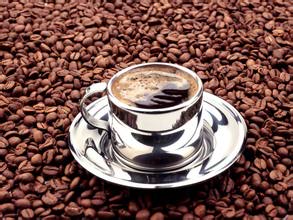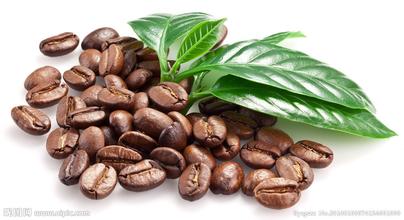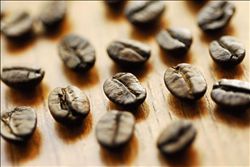Description of Coffee Flavor in Berman Manor in Kenya; introduction to the taste of varieties in producing areas
Guatemala is a multi-party, independent democratic republic. The Constitution promulgated on 15 January 1986 provides for the separation of legislation (the Guatemalan Congress), law enforcement (the President and Vice-President) and the judiciary (the Supreme Court), belonging to the system of separation of powers. Congressional and presidential elections are held every four years, and all citizens over the age of 18 have the right to vote, while soldiers do not have the right to vote. Congress appoints members of the Supreme Court for a term of four years. The current government of Guatemala was formed in January 2012. The main members are: vice President Rosanna Baldetti, Foreign Minister Harold Cavalieros, Minister of the Interior Maurizio Lopez Bonillia, Minister of Defense Ulisses Noe Soedo Hilone, Minister of Finance Pavel Centrino, Minister of Transport and Infrastructure Guillermo Castillo, Minister of Education Cynthia del Aguila, Agriculture, The Minister of Animal Husbandry and Food Mario Aldana, the Minister of economy and Trade Sergio de la Torre Jimeno, the Minister of Public Health and Social Welfare Ludwig Ovalle, the Minister of Labour and Social Security Carlos Contreras, the Minister of Energy and Mining Eric Estuardo Achira de Essa, the Minister of Culture and Sports Jeronimo Lanserio, The Minister of Environment and Natural Resources Luis Armando Zulita Tablada Guatemala implements compulsory military service for the regular army. The term of service is two years. The President of the Republic is the Commander-in-Chief of the Armed Forces, but his orders are issued through the Minister of Defence. The original total strength of 46000 has been reduced by 33% in accordance with the 1996 agreement on strengthening the role of the civilian regime and the army in a democratic society, and the civil defense police has been set up after the abolition of the former military police. The total strength is about 44200 (active service); about 40, 000 reserves; more than 310000 paramilitary forces: 9800 national police, 2500 economic police and 300000 people's militia
Drinking pure Antigua coffee from Guatemala and playing a South American folk song. Our thoughts can be pulled far away, as far as we have never met before. The wise Mayans who once existed in the land of Guatemala, after a day's work under coffee trees we have never seen before, they enjoyed authentic Guatemalan coffee after dinner and watched the sunset fade away on the sea level.
Mayan culture is not only one of the most important ancient cultures in the world, but also an important classical culture in America. According to historical data, the Mayans cultivated new grain varieties that made great contributions to mankind in agricultural production, such as corn, tomatoes, pumpkins, beans, sweet potatoes, peppers, cocoa, vanilla and tobacco, among which the cultivation of corn made the greatest contribution to mankind. Although there is no record of coffee here, today, most coffee growers in Guatemala can be seen as descendants of the Mayans, and they like to be called that.
Guatemalan coffee has a strong aroma, even if you don't drink it, just smelling it is already a pleasure. Antigua coffee has a rich and velvety mellow, rich and lively aroma, and fine sour taste. When the attractive fragrance lingers on the tip of your tongue, there is an indescribable mystery. You may feel dull at the first sip, but as the coffee cools down, you will find it slightly sweet and be surprised by its depth.
Antigua coffee is popular with most coffee lovers only because of its distinctive aroma. Because it is planted in the hills of volcanoes, it can retain its own characteristics more than Costa Rica, the main reason is that it has more geographical and climatic advantages than Costa Rica. Guatemala is located in the tropics, but due to the relatively high altitude, the climate is mild, it is a subtropical climate. Under the influence of this climate, coffee trees blossom and bear fruit more slowly than coffee trees in other parts of the world. However, the mild climate and fertile soil make it an excellent environment for growing coffee.
The coffee industry, run by the Mayans, once boomed Guatemala's economy and dominated the national economy. Unfortunately, the political situation in Guatemala is not good for these coffee growers. High output is usually a sign of a country's overall economic prosperity. However, coffee production in Guatemala has declined relatively, at 700kg per hectare, compared with 900kg per hectare in El Salvador and 1700 kg per hectare in Costa Rica. Guatemalan coffee exports are controlled by private companies, but the National Coffee Commission controls other sectors of the coffee industry.
At present, some of the best quality coffee from Guatemala is exported to Japan, where each cup of coffee sells for $3 to $4. In order to revitalize its coffee industry, Guatemala has specially set up a special coffee association and gives maximum funding and attention to these high-quality coffee. These efforts will soon bear fruit, and the real beneficiaries are not only coffee growers, but also coffee lovers all over the world.

Important Notice :
前街咖啡 FrontStreet Coffee has moved to new addredd:
FrontStreet Coffee Address: 315,Donghua East Road,GuangZhou
Tel:020 38364473
- Prev

Description of Coffee Flavor in Incht Manor, Guatemala; introduction to the taste of varieties in producing areas
In 1982, the leftist guerrillas of the whole country merged to form the National Revolutionary Union of Guatemala, and armed struggle spread all over the country. Farmers dissatisfied with the overthrow of the Arbens regime organized a guerrilla group in which more than 100,000 people were killed and millions displaced. In September 1982, the persecution of the local Mayans by the Guatemalan army was close to genocide, and more than 9000 Mayans were killed. nineteen
- Next

Introduction of Coffee Flavor description, Grinding characteristics and Variety producing areas in Santa Barara, Honduras
Honduras is a mountainous country in Central and North America, with a population of more than 8.3 million and an area of about 112000 square kilometers. Located in the north of Central America. It is bordered by the Caribbean Sea to the north, the Gulf of Fonseca in the Pacific Ocean to the south, Nicaragua and El Salvador to the east and south, and Guatemala to the west. More than 3/4 of the territory are mountains and plateaus. The mountains extend from west to east, inland is a lava plateau, mountainous
Related
- Does Rose Summer choose Blue, Green or Red? Detailed explanation of Rose Summer Coffee plots and Classification in Panamanian Jade Manor
- What is the difference between the origin, producing area, processing plant, cooperative and manor of coffee beans?
- How fine does the espresso powder fit? how to grind the espresso?
- Sca coffee roasting degree color card coffee roasting degree 8 roasting color values what do you mean?
- The practice of lattes: how to make lattes at home
- Introduction to Indonesian Fine Coffee beans-- Java Coffee producing area of Indonesian Arabica Coffee
- How much will the flavor of light and medium roasted rose summer be expressed? What baking level is rose summer suitable for?
- Introduction to the characteristics of washing, sun-drying or wet-planing coffee commonly used in Mantenin, Indonesia
- Price characteristics of Arabica Coffee Bean Starbucks introduction to Manning Coffee Bean Taste producing area Variety Manor
- What is the authentic Yega flavor? What are the flavor characteristics of the really excellent Yejasuffi coffee beans?

